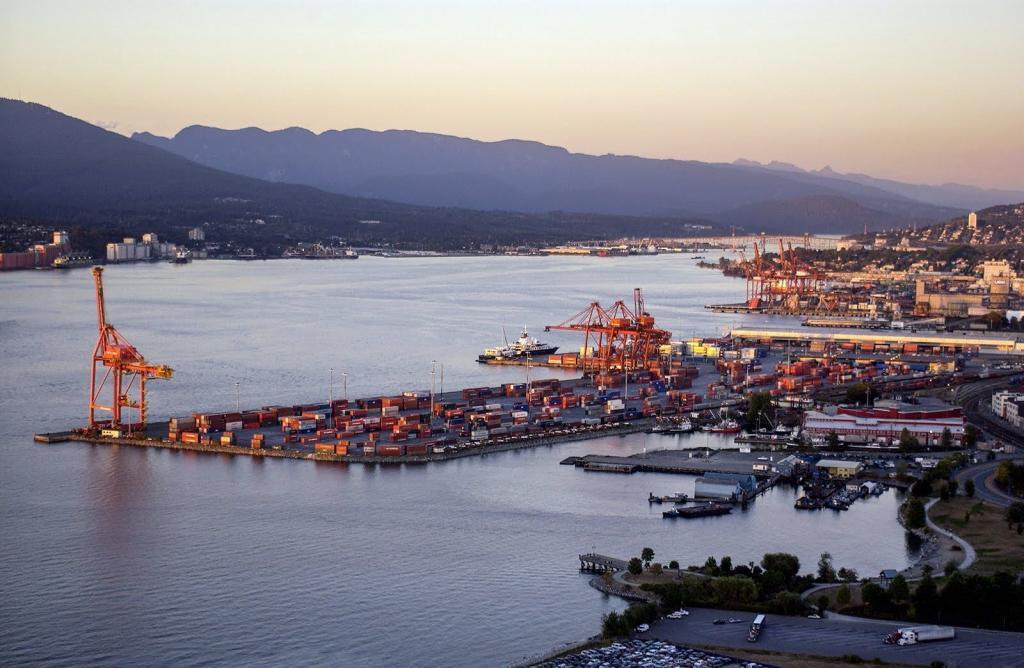West Coast Port Strike Implications - A Blow to the Canadian Economy

Overview of the West Coast Port Strike
The West Coast Port Strike was a labor dispute that occurred at major ports along the west coast of North America, including those in Canada. The strike had a detrimental effect on the Canadian economy, as it disrupted trade and supply chains. Businesses faced challenges in importing and exporting goods, leading to delays and financial losses. The strike lasted for several months, causing significant disruptions to the flow of goods and impacting various industries. However, efforts were made to mitigate the damage caused by the strike, such as diversifying trade routes and finding alternative transportation methods.
Impact on Canadian Businesses and Economy
The West Coast Port Strike had a significant impact on Canadian businesses and the economy as a whole. With major ports along the west coast disrupted, businesses faced challenges in importing and exporting goods. This led to delays in shipments and financial losses for many companies. Industries such as manufacturing, retail, and agriculture were particularly affected, as they heavily rely on the smooth flow of goods through the ports. The strike also disrupted supply chains, causing further disruptions in production and distribution.
The Canadian economy experienced a slowdown during the strike, with decreased trade activity and reduced economic growth. Efforts were made to mitigate the damage caused by the strike, including diversifying trade routes and finding alternative transportation methods. However, the impact of the strike on Canadian businesses and the economy was significant and took time to recover from.
Challenges Faced by Businesses During the Strike
During the West Coast Port Strike, businesses in Canada faced numerous challenges. One of the main challenges was the disruption in importing and exporting goods. With major ports along the west coast affected, companies experienced delays in shipments, leading to financial losses. Industries such as manufacturing, retail, and agriculture were hit hard, as they heavily rely on the smooth flow of goods through the ports.
The strike also caused disruptions in supply chains, further impacting production and distribution. Additionally, businesses had to find alternative transportation methods and diversify trade routes to mitigate the damage caused by the strike. Overall, the strike posed significant challenges for Canadian businesses, requiring them to adapt and find solutions to continue their operations.

Mitigation Efforts and Strategies Implemented
To mitigate the detrimental effects of the West Coast Port Strike on the Canadian economy, businesses implemented various efforts and strategies. One key approach was finding alternative transportation methods to ensure the continued flow of goods. This involved utilizing other ports, such as those on the East Coast, and exploring options like rail and air freight. Additionally, businesses sought to diversify their trade routes, reducing their reliance on the affected west coast ports.
This involved establishing new partnerships and exploring international trade opportunities. Companies also focused on improving supply chain resilience by identifying potential bottlenecks and implementing contingency plans. These efforts aimed to minimize disruptions in production and distribution, allowing businesses to continue operating despite the challenges posed by the strike.
Long-Term Effects and Lessons Learned from the Labor Dispute
The West Coast Port Strike had significant long-term effects on the Canadian economy. Many businesses experienced financial losses due to delayed shipments and disrupted supply chains. The strike highlighted the vulnerability of relying heavily on a single transportation route and the importance of diversifying trade routes to mitigate future risks.
Companies learned the importance of having contingency plans in place to minimize disruptions and maintain operations during labor disputes. This event served as a wake-up call for businesses to prioritize supply chain resilience and explore alternative transportation methods. Overall, the labor dispute highlighted the need for proactive measures to protect the Canadian economy from similar disruptions in the future.
If you’re looking for alternative shipping ports or need help arranging for other means of transport – contact our team to learn more about available options.
As part of our commitment to Supply Chain Sustainability, Nu-Era Logistics is a proud supporting member of the SmartWay program.
